The shortlist for nominees for the Academy Award for Best Documentary Feature were announced yesterday and there's one huge snub.
Disclosure, the documentary by Sam Feder about trans representation in media was not only one of the best documentaries in a long time, but one of the most socially relevant since An Inconvenient Truth in 2006. Somehow, it was left off the Oscars shortlist.
It really is a feat to have distilled 100 years of trans representation going back to the very beginnings of cinema into a cohesive documentary that holds its viewers attention the whole time. The film brought together some of the greatest voices on trans representation and included clips from dozens of films and shows, and was able to show a clear pattern through all of it.
It's not just a shame that the Academy is ignoring one of the best, and most important, trans films of all-time, it's a shame that they aren't acknowledging the huge cultural impact it has had.
The Academy loves a documentary that's not just good, but relevant. Look at their choices like Bowling for Columbine in 2002, the previously mentioned An Inconvenient Truth, Citizenfour in 2014, and American Factory last year. And few documentaries have been as relevant as Disclosure.
Last year at least 44 trans people were violently killed in the United States, making it the deadliest year on record in this country. It was a dark year, and Disclosure shines a light on the issue. In the film, actress and producer Jen Richards talks about the connection between harmful portrayals of trans women in movies and TV and real-life violence against -- the vast majority of those deaths were those of trans women, specifically Black trans women.
"In my mind, part of the reason that men end up killing trans women out of fear that other men will think that they are gay for having been with trans women, is that their friends, the men whose judgment they fear, only know trans women from media and the people who are playing trans women are the men that they know," Richards says in the documentary. "This doesn't happen when a trans woman plays a trans woman; Laverne Cox is just as beautiful and glamorous off-screen as she is onscreen. When you see these women off-screen still as women, it completely deflates the idea that they are somehow men in disguise."
Those words, and this documentary, are changing culture. Disclosure is doing exactly what a great documentary should do: it's changing the world as we know it. The feature is already causing real change in Hollywood, change that the Academy is ignoring. Feder said that Richard's involvement in the new Clarice series was directly a result of the film. They told Vanity Fair that someone on the Clarice team saw the movie and asked Sydney Freeland, a trans director on the project, "Oh, my God, have you seen Disclosure? We have to rewrite so much of this now." And that's what they did. The show hired Richards to help with the scripts and play a trans character on the show. "The series might have come out and perpetuated the harm that we see in Disclosure," Feder said, "but now that path is completely different."
Stars like Ryan Reynolds and Halle Berry have also been impacted by the film. After seeing Disclosure, Reynolds launched a diversity program to get more marginalized people trained in the film industry -- this was based off a program Disclosure ran during its production. When Halle Berry was going to star as a trans man in a movie, she stepped away from the role after being contacted by the Disclosure team. That's the kind of impact an Oscar-winning documentary should have. But this impact will extend outside of the industry.
The more people who see Disclosure, the less violence trans people will face. As they say in the film, most Americans don't know any out trans people, so who they see on screen is it. And if more of them saw Disclosure, which features over 30 trans folks on screen, a lot of minds would be changed. The Academy could have given trans people that platform to be seen.
Not only is the community facing increased rates of violence, but during the Trump years, there was an unprecedented amount of anti-trans bills in the US, TERFs went from being a tiny internet subculture to a legitimate threat, and trans students have become Public Enemy Number One for many conservative lawmakers in an ongoing battle currently being waged across the nation.
If the Academy wanted to make a political statement, wanted to be a part of a cultural moment, and recognize work that is already making real change and that will be referenced for years to come, Disclosure would have been the way to go. But they didn't want to take that stance, and so the moment and movement will pass them by.
They could have been a part of something big, recognizing the contributions that trans people have had, not just in Hollywood, but in the world. The Academy loves to ignore trans actors and filmmakers though, so maybe this shouldn't be a surprise. Maybe if instead of Laverne Cox, Alexandra Grey, Brian Michael Smith, and Jen Richards, the documentary should have featured Jaye Davidson, Jared Leto, and Eddie Redmayne. Then it would've gotten the Academy's attention.
Always great with her words, Richards summed up how many trans people are feeling about the snub in a tweet. "I confess it's hard to not be a little hurt that documentaries about an octopus, a pig, and truffles got shortlisted, but 30+ trans people covering 100 years of media representation didn't," she said.
Still, as trans people always have to do, she found a silver lining. "At the same time, Disclosure has already had a massive impact, more than we ever anticipated," she continued, "I've seen real change, and that's what matters most." Hopefully, one day soon, the Academy will be a part of that change.
RELATED: It's Time For a New Tipping Point for Transgender Folks in Hollywood























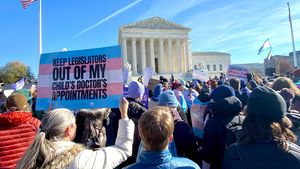











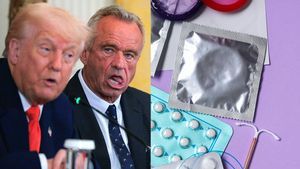








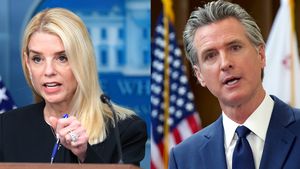









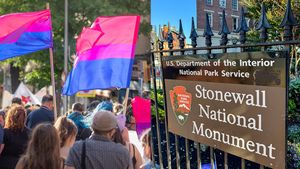













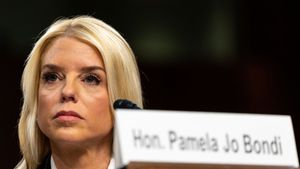


'Disclosure' Is the Biggest Oscar Snub of the Year — The Film Is Vital
The shortlist for Best Documentary Feature was announced yesterday, and there's one film whose absence really hurts.